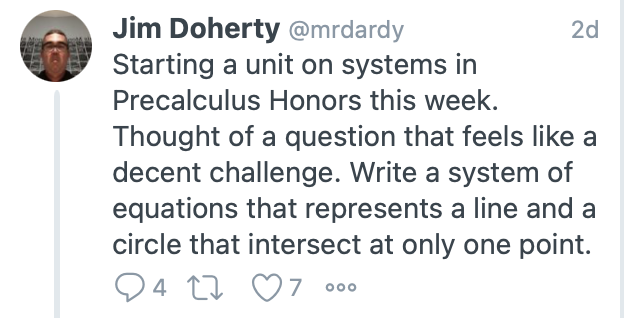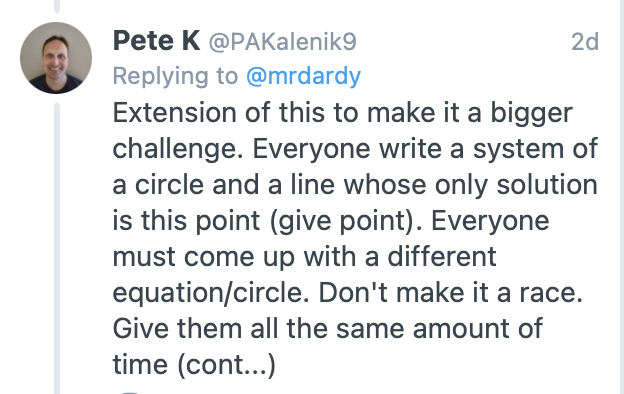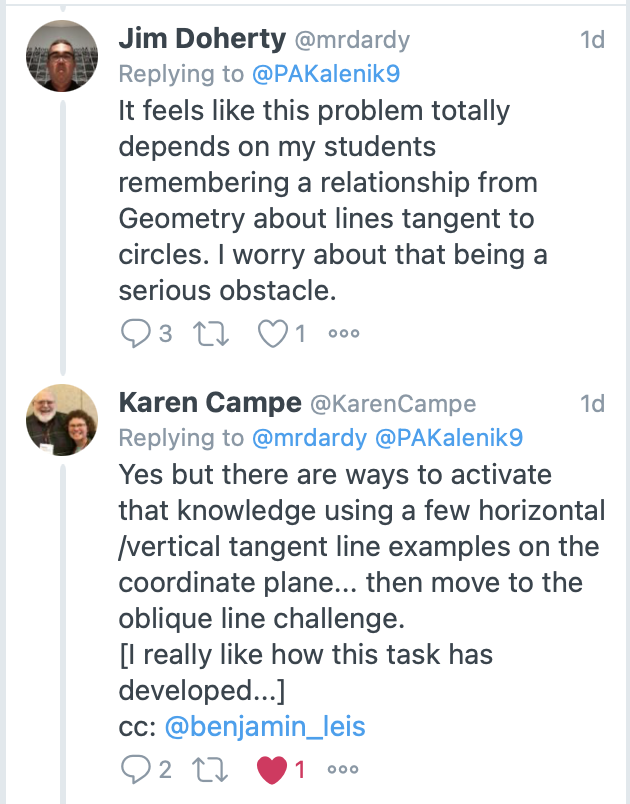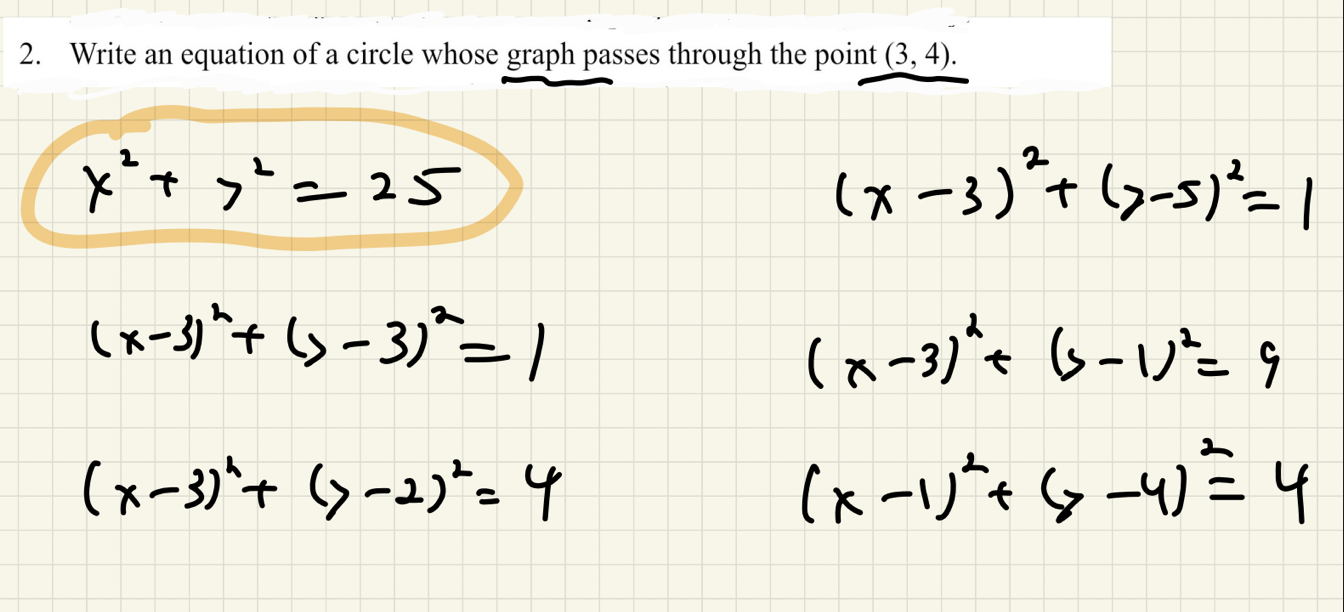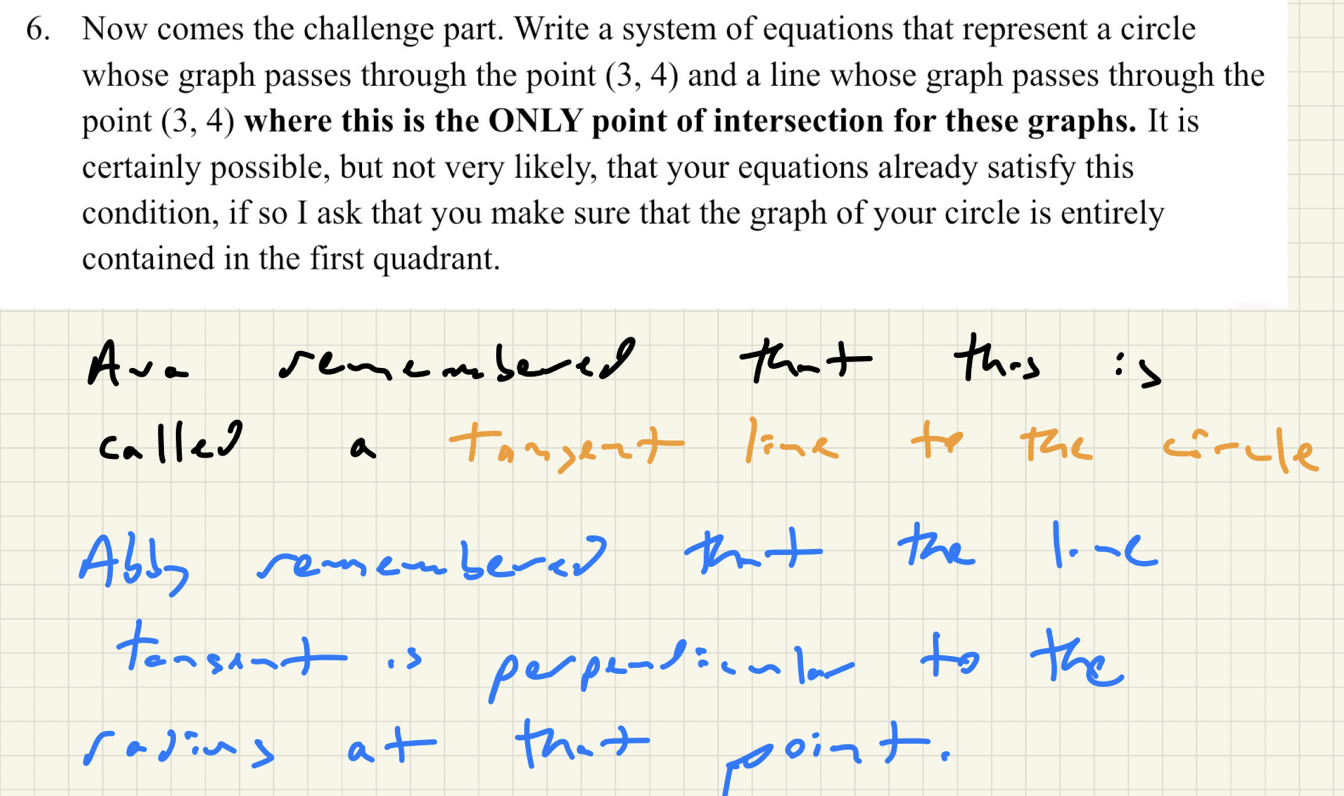I am flattered and excited to be part of a pretty cool event happening next month in California. A little history here to explain this. In 1995, and again in 2008, I was fortunate enough to attend the Ajna S. Greer Annual Conference on Secondary School Mathematics, Science and Technology at Philips Exeter Academy. Looking at those dates, I think I need to make my way back again before too long!
Each of my summers there were fantastic in a number of ways, but in terms of todays post the particular fantastic thing to point out is that I met Carmel Schettino there. My memory is that we met the first time I was there, she may remember otherwise, but the important thing is that I met her. Carmel is a thoughtful educator who is committed to Problem Based Learning in the math classroom. You can read up on some of her work here ( https://www.carmelschettino.org/ ) She currently works at a pretty amazing school called The Avenues School (you can see what they are about here – https://www.avenues.org/ ) and I have had the pleasure of visiting their New York City campus and taking part in a summer workshop there a few years ago (pre-COVID) and Carmel and I have been in touch off and on for quite some time now. I was VERY flattered when Carmel reached out to me in January to ask if I would be a presenter for what she calls a Jam Session at an upcoming conference she was organizing. I jumped at the opportunity and was able to work it out with my administration and I am totally happy to share that I will be in San Jose, CA at the newest campus of The Avenues School for what is being called a PBL Math Teaching Summit at The Avenues Silicon Valley campus from April 27 through April 29.
While Carmel has worked at schools where there is a more intensive focus on problem based learning, she knows that I have been working at schools that have a more traditional view of their curriculum. However, even at the three schools I have worked at in the time I have known Carmel, I have been able to regularly carve out some space in our curriculum for problem based learning. I have stolen ideas (and some problems!) from a number of sources over the years. I imagine that anyone reading this is familiar with the Exeter Math Curriculum and their public problem sets (you can find them here – https://www.exeter.edu/mathproblems ), I have also used math competitions that I have found on the internet, I borrow liberally from the bookshelf of texts I have in my room, I have borrowed from The Park School curriculum, and a number of other schools that have been generous in sharing their work out on the web. The proposal I put together for Carmel for this event is that I am going to speak out the social learning aspect that I see my problem sets creating in my school. I am going to concentrate on the school where I currently work. I have been here since the fall of 2010 and in four of my courses here I have made take home problem sets a part of the curriculum and a part of how I assess my students’ progress. I live and work at my school. We are a PK – PG day and boarding school and I lived for six years in one of our student dorms. In my time here I have regularly seen groups of students gathered working on my problem sets. In the dorms, in the cafeteria, in the library, after school in my classroom during our extra help conference time. I routinely see students gathered and working bouncing ideas off of each other. The real joy is that they often ignore me, there are times when even though I am in the room with them, they simply pick each others’ brains. Sometimes students who aren’t in my class come by because they hear an interesting conversation. Sometimes students who had been in my class the year before drop in to share their memories or some tips to help move the conversation forward. I have been reaching out to a number of our alum to ask them to reflect on their experiences and I have been receiving some terrific replies from folks and I am excited to share in depth when I am in CA in April. I will be setting up a shared drive with resources and I will be sharing some of the particularly valuable reflections that my students’ have shared. Mostly though I am looking forward to spending some time in the company of other math teachers who are able to share their experiences in this approach to teaching and meeting a number of math teachers who are looking to make the leap and expand their toolbox.
I will be sharing my experiences after the conference in early May when I get back and get settled in. If you are interested in more information about this conference, there is contact information on Carmel’s website and you can reach out to her that way.
As always, if you want to reach out you can comment here or find me over on twitter where I am @mrdardy
